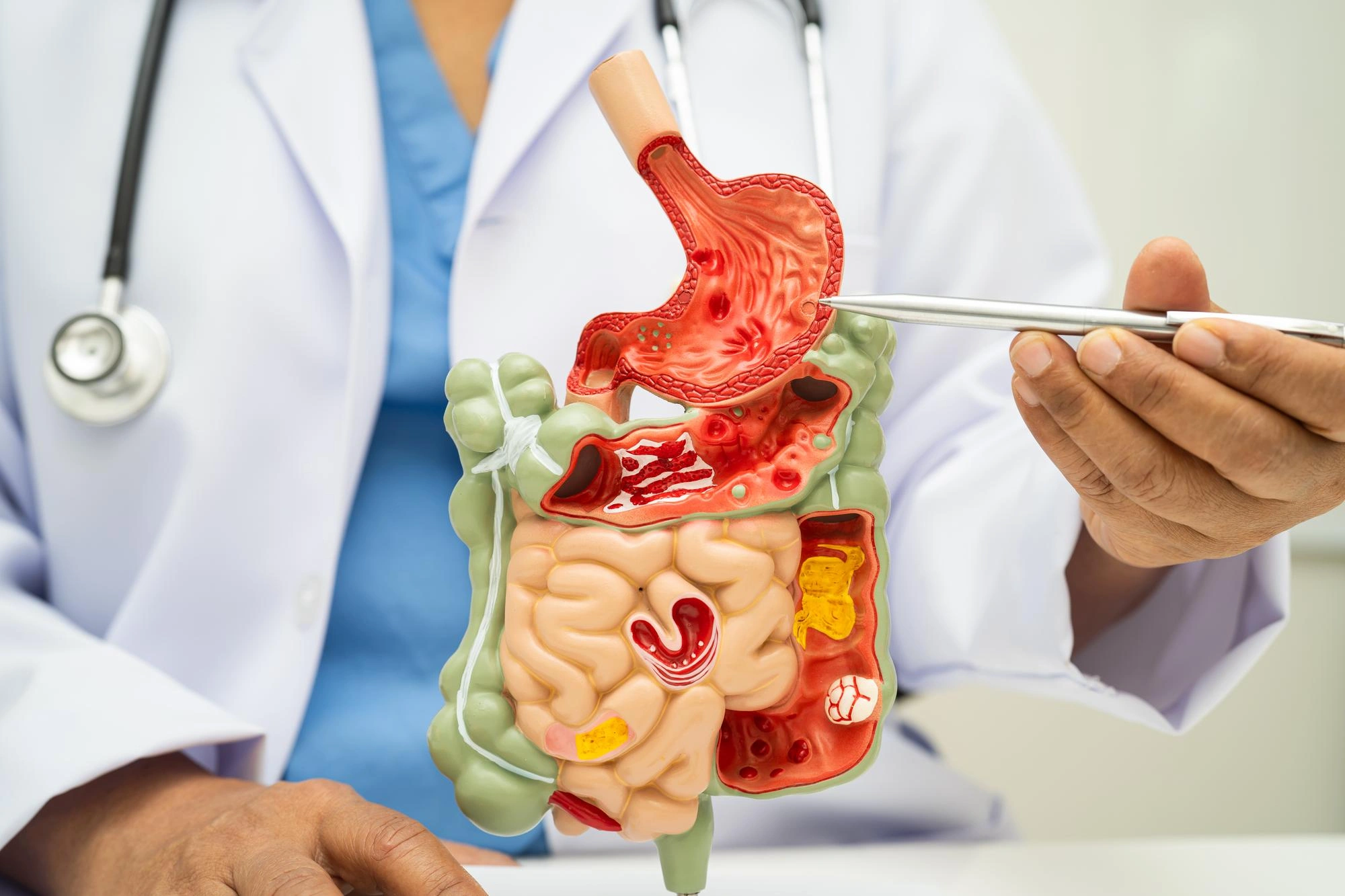
What conditions do gastroenterologists treat?
Gastroenterologists are medical professionals specializing in diagnosing and managing disorders affecting the digestive system, which includes the esophagus, stomach, intestines, liver, pancreas, gallbladder, and bile ducts. They help individuals address conditions that impact digestion, nutrient absorption, and overall wellness.
Acid Reflux and GERD
Acid reflux occurs when stomach acid flows backward into the esophagus, leading to a burning sensation known as heartburn. Frequent episodes can develop into gastro esophageal reflux disease (GERD), a chronic issue causing persistent heartburn, chest pain, trouble swallowing, and chronic coughing. Management options range from lifestyle modifications and medications like antacids and proton pump inhibitors to surgical interventions in severe cases.
Peptic Ulcer Disease
Peptic ulcers are painful sores that form in the stomach lining or small intestine due to bacterial infections like Helicobacter pylori or prolonged use of nonsteroidal anti-inflammatory drugs (NSAIDs). Symptoms may include stomach pain, bloating, nausea, and in extreme cases, bloody stools. Treatment typically involves antibiotics for bacterial infections, acid-reducing medications, and dietary changes.
Irritable Bowel Syndrome (IBS)
IBS is a disorder that disrupts normal bowel function, resulting in symptoms like abdominal cramps, bloating, constipation, and diarrhea. The exact cause remains unclear, but treatment often involves dietary adjustments, stress management techniques, fiber supplements, and medications to alleviate symptoms.
Inflammatory Bowel Disease (IBD)
Inflammatory Bowel Disease (IBD) consists of Crohn’s disease and ulcerative colitis, both of which trigger chronic inflammation in the digestive tract. Crohn’s disease can impact any part of the gastrointestinal tract, while ulcerative colitis primarily targets the colon and rectum. Symptoms include abdominal discomfort, severe diarrhea, unexplained weight loss, and fatigue. Treatments may include anti-inflammatory drugs, immune system suppressants, specialized diets, and, in severe cases, surgery.
Celiac Disease
Celiac disease is an autoimmune condition where the consumption of gluten (found in wheat, rye, and barley) prompts an immune response that damages the small intestine. This can result in digestive issues, fatigue, unintended weight loss, and nutrient deficiencies. The only effective solution is adopting a lifelong gluten-free diet.
Gallbladder Disease and Gallstones
Issues with the gallbladder, such as gallstones, can cause intense pain in the upper right abdomen, nausea, and vomiting. Treatments vary from dietary adjustments and medications to surgical removal of the gallbladder in severe cases.
Liver Diseases
Liver conditions, including hepatitis, fatty liver disease, and cirrhosis, can significantly affect digestion and overall health. Depending on the specific liver disorder, treatments may involve antiviral medications, lifestyle modifications, or, in critical cases, liver transplants.
Pancreatic Disorders
Pancreatic conditions like pancreatitis and pancreatic cancer can impair digestion and insulin regulation. Pancreatitis is often linked to alcohol consumption or gallstones, while pancreatic cancer presents symptoms like jaundice, sudden weight loss, and appetite reduction. Treatment methods range from enzyme supplements and pain management to surgical procedures and chemotherapy.
Colon Polyps and Colon Cancer
Colon polyps are abnormal growths in the colon that have the potential to become cancerous if left untreated. Colon cancer is a life-threatening disease that is often identified through screenings such as colonoscopies. Treatment approaches may include surgery, chemotherapy, and lifestyle modifications.
Swallowing Disorders
Swallowing disorders, such as achalasia and esophageal strictures, make swallowing difficult. Achalasia occurs when the esophagus fails to move food properly into the stomach, while strictures cause narrowing of the esophagus. Treatment options include esophageal dilation, Botox injections, or surgical intervention.
Hemorrhoids and Rectal Disorders
Hemorrhoids are swollen veins in the rectal area that can result in pain and bleeding. Other rectal conditions, such as anal fissures, may cause similar symptoms. Treatment options range from lifestyle modifications and topical treatments to minimally invasive procedures like rubber band ligation.
When to See a Gastroenterologist
If you experience frequent heartburn, persistent abdominal discomfort, unexpected weight loss, changes in bowel habits, or chronic nausea, it might be time to consult a gastroenterologist. Early diagnosis and intervention can prevent complications and enhance overall well-being. Gastroenterologists use advanced tools like endoscopy, colonoscopy, and imaging tests to accurately diagnose and treat digestive disorders. Taking charge of your digestive health through proactive medical care can lead to long-term wellness.
Conclusion
Maintaining a healthy digestive system is key to overall well-being, and gastroenterologists are vital in diagnosing and managing numerous digestive conditions. Whether dealing with acid reflux, IBD, liver disease, or colon cancer, early detection and timely medical care can significantly improve outcomes. If you are facing persistent digestive symptoms, seeking help from a specialist can facilitate early intervention and effective treatment. Focusing on gut health through balanced nutrition, routine check-ups, and lifestyle adjustments can contribute to a healthier and more comfortable life.



